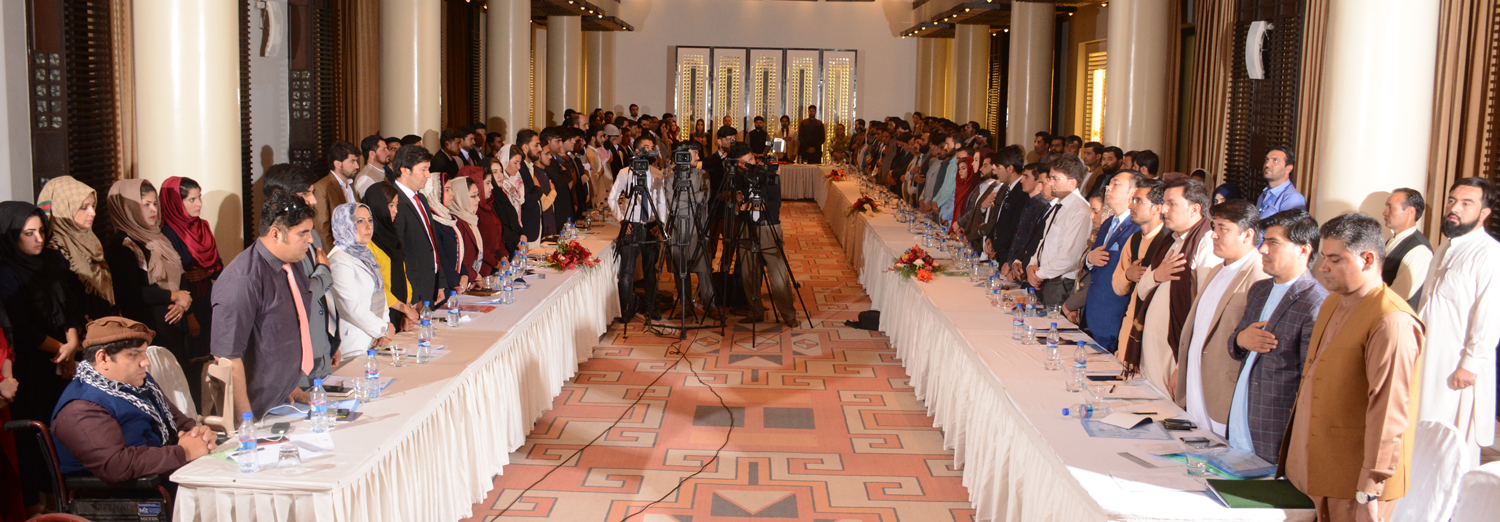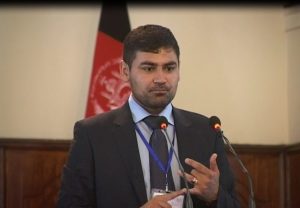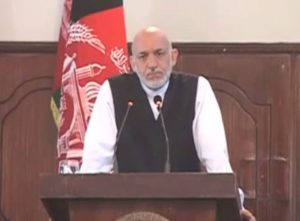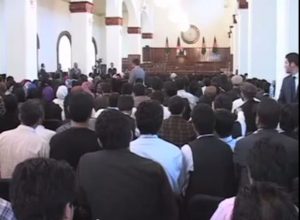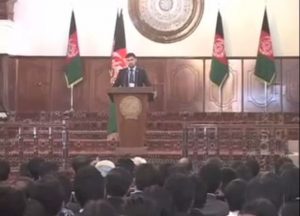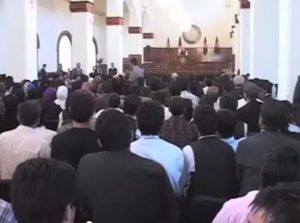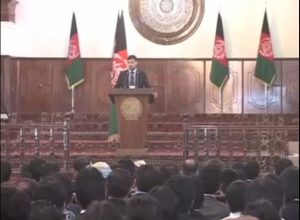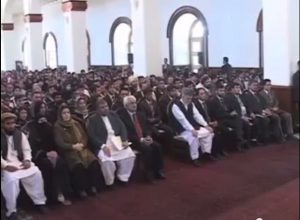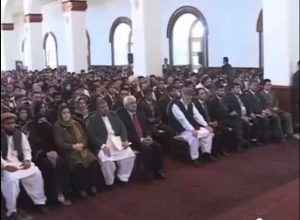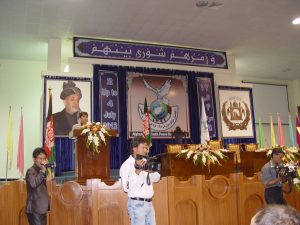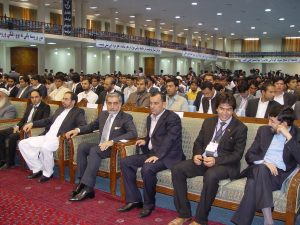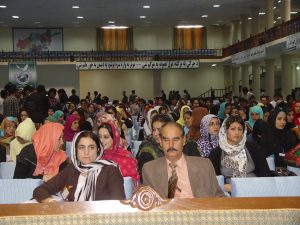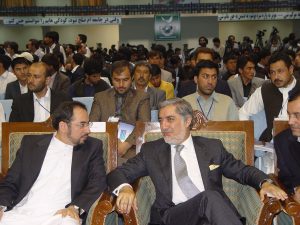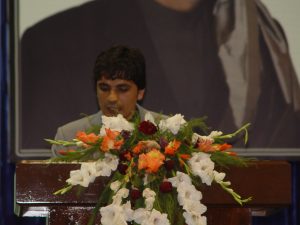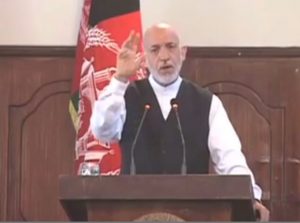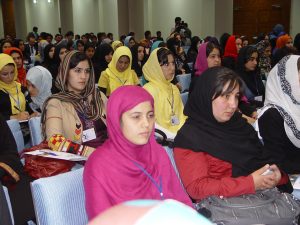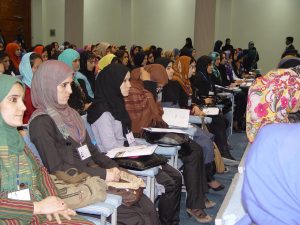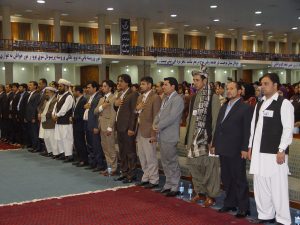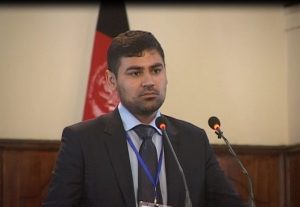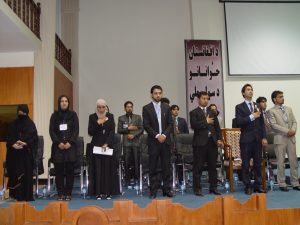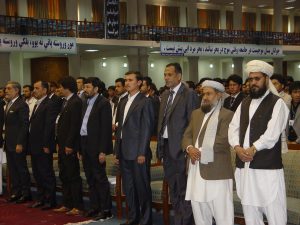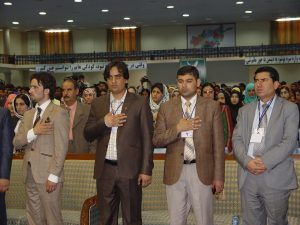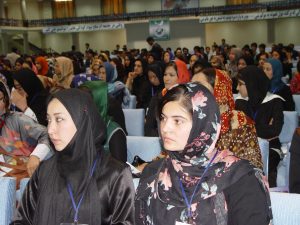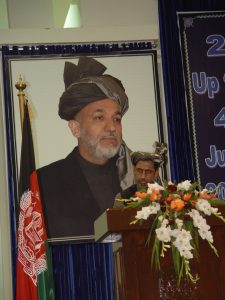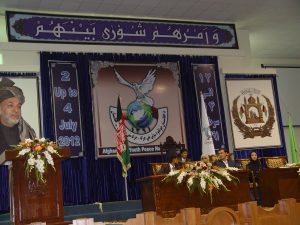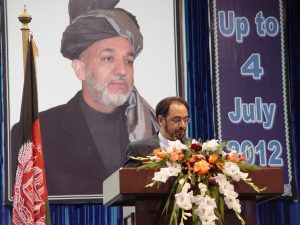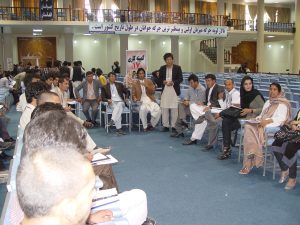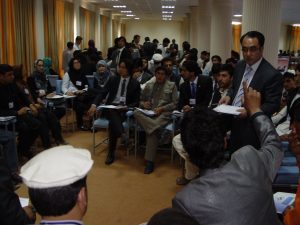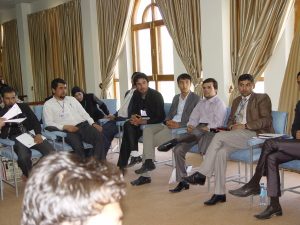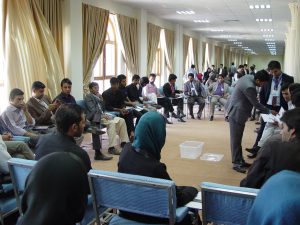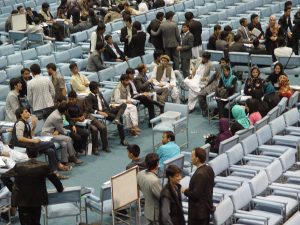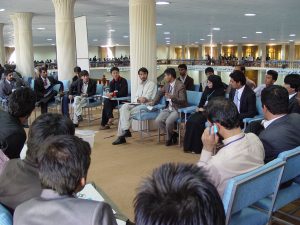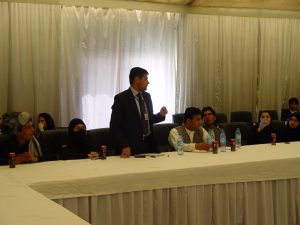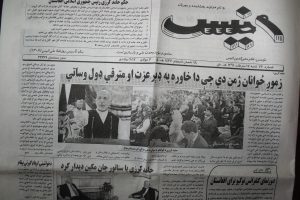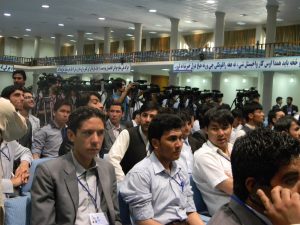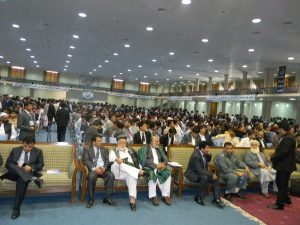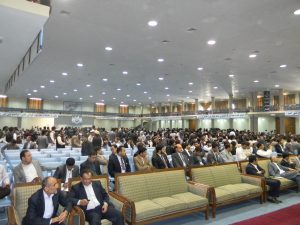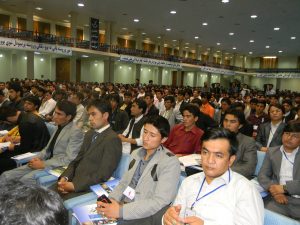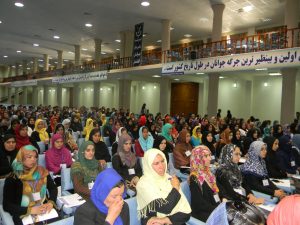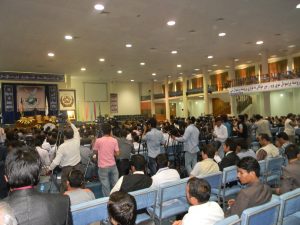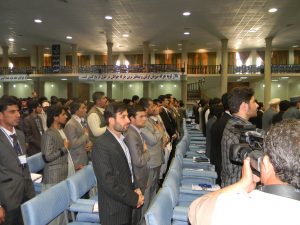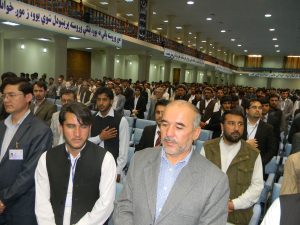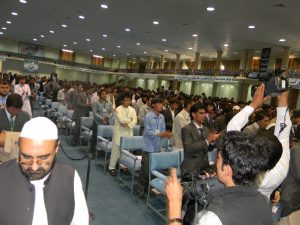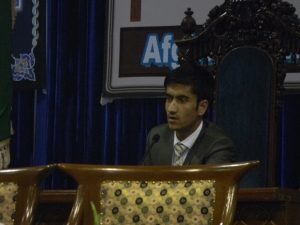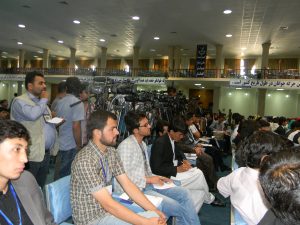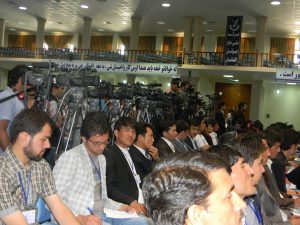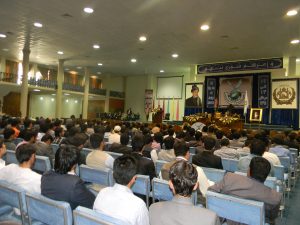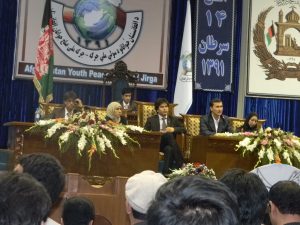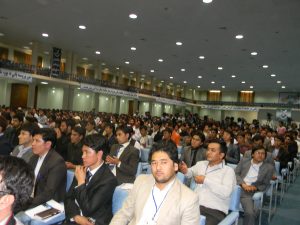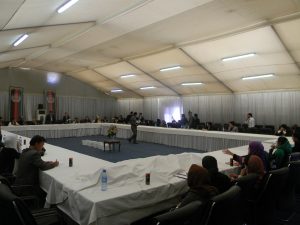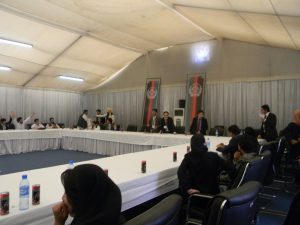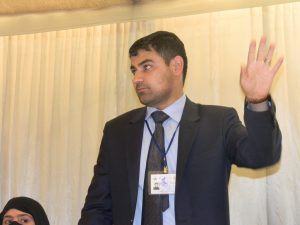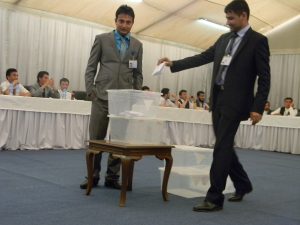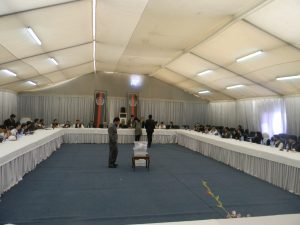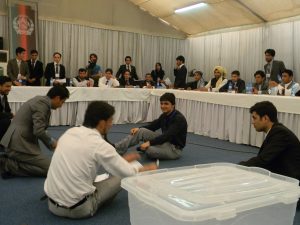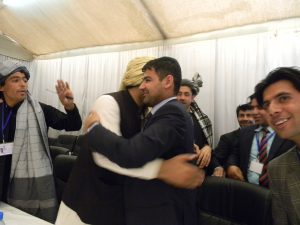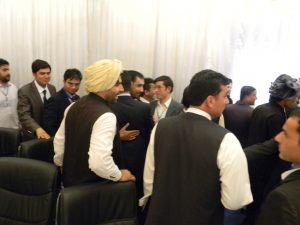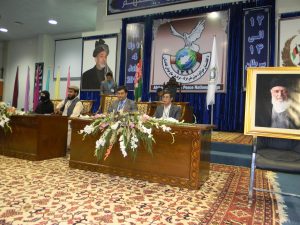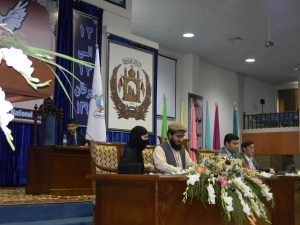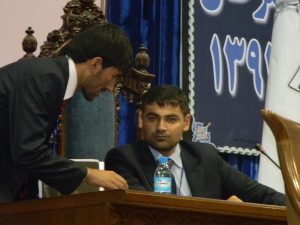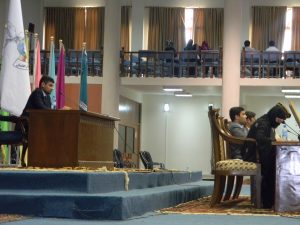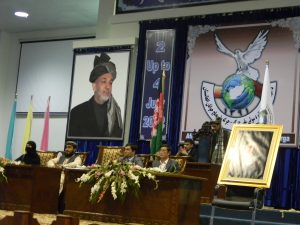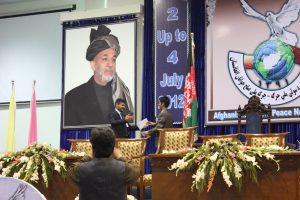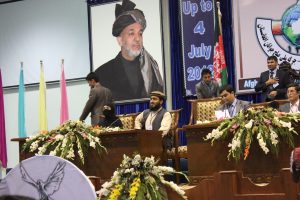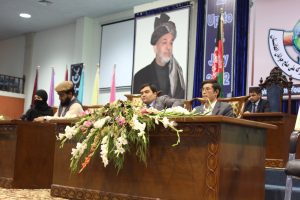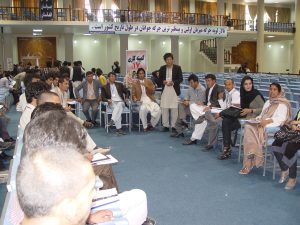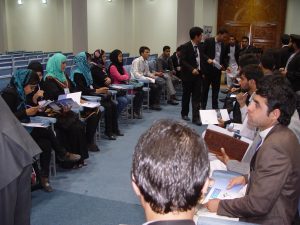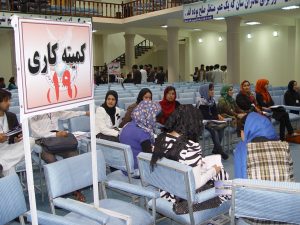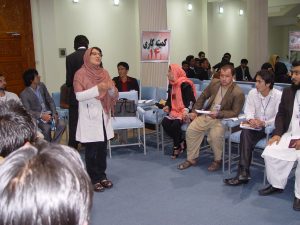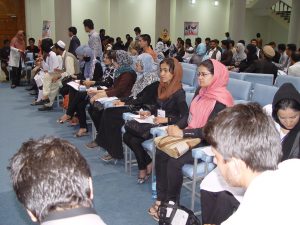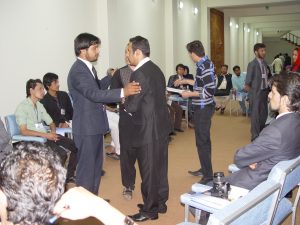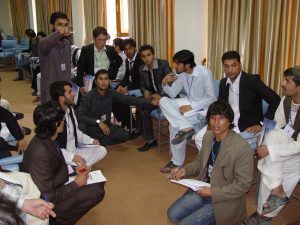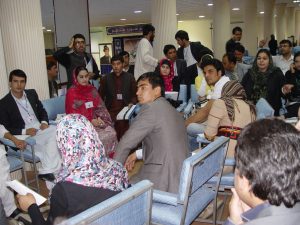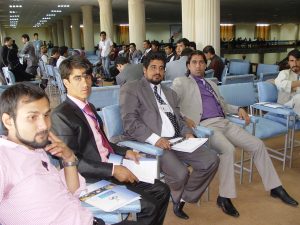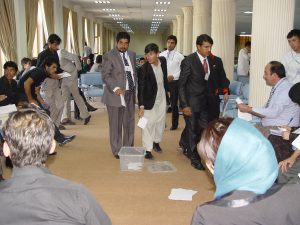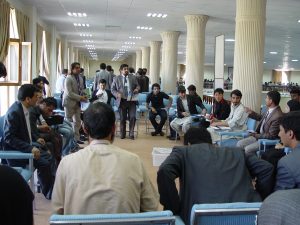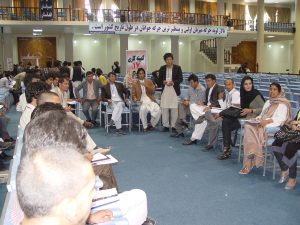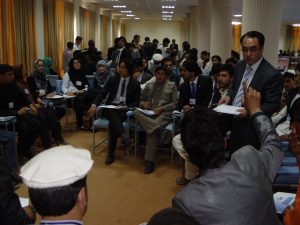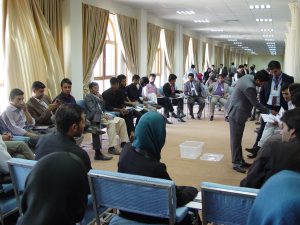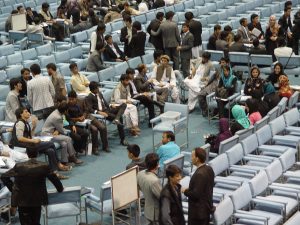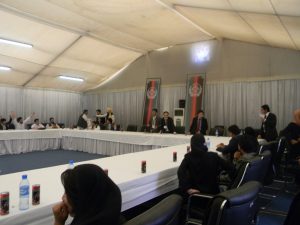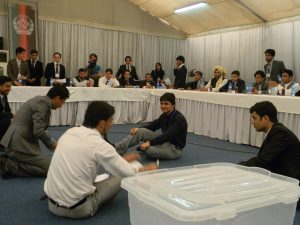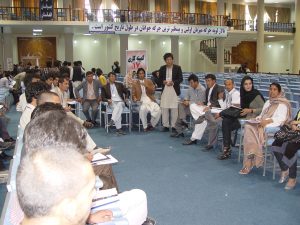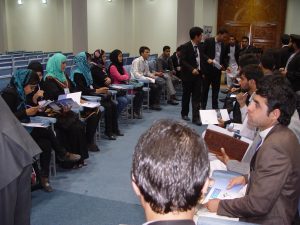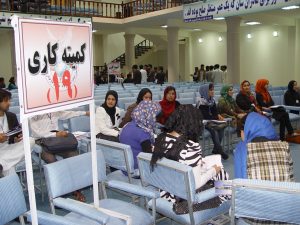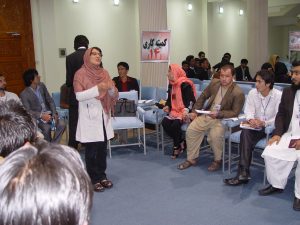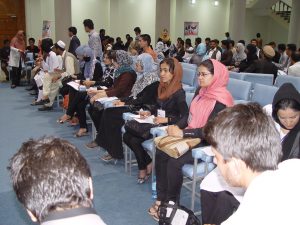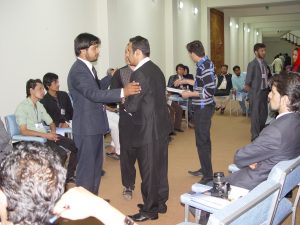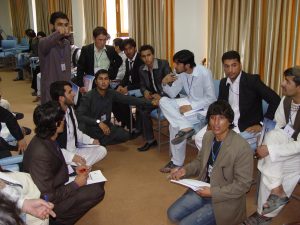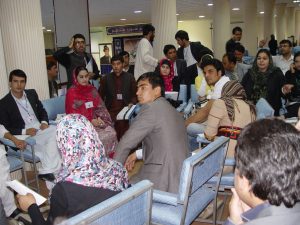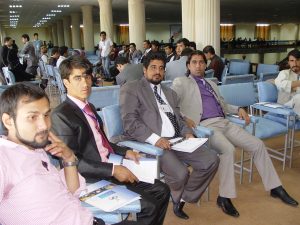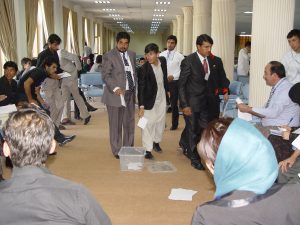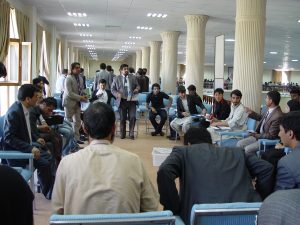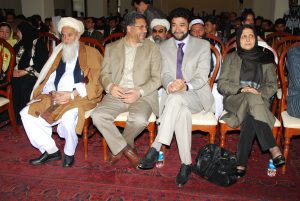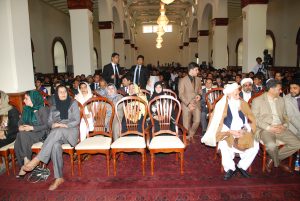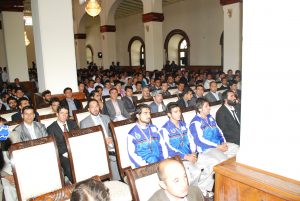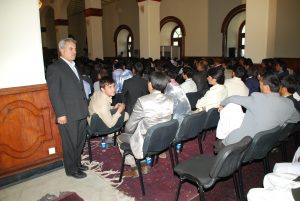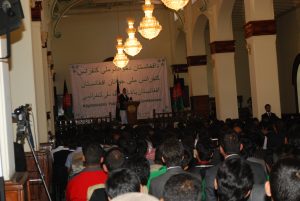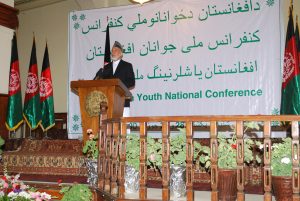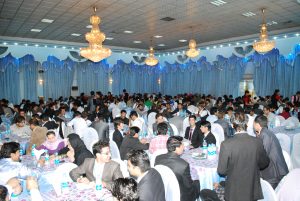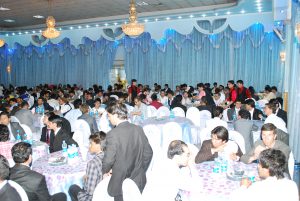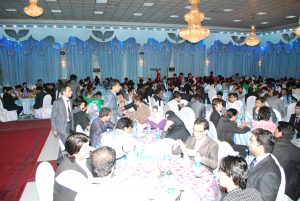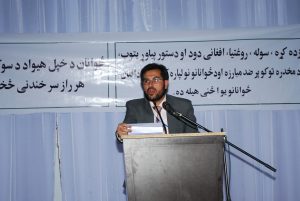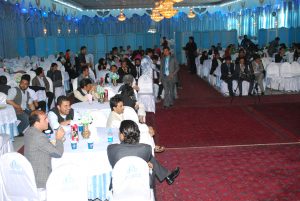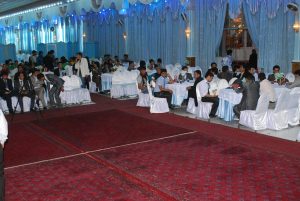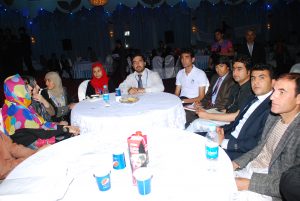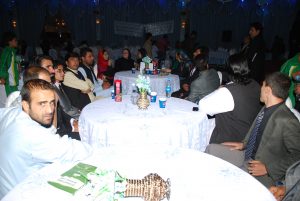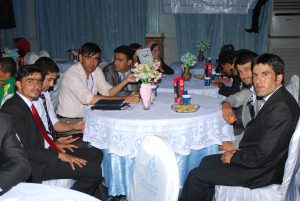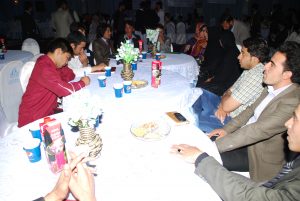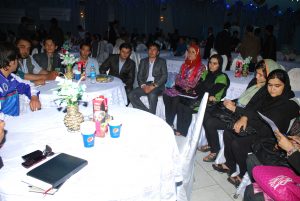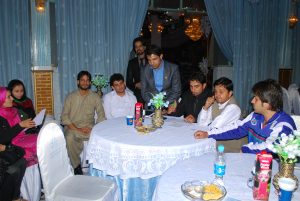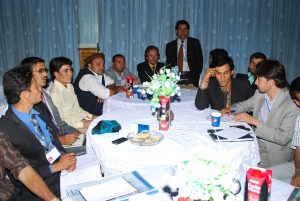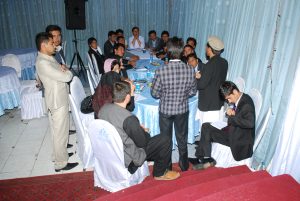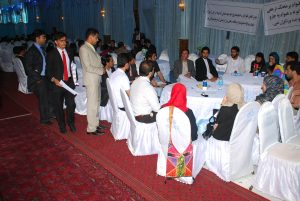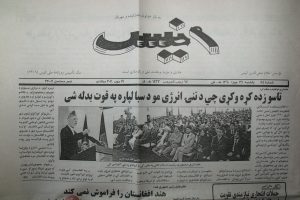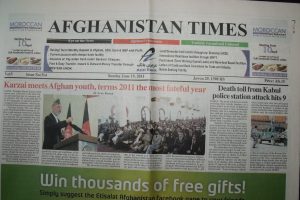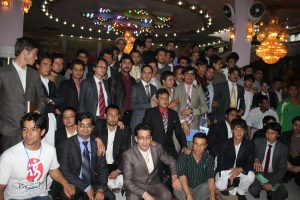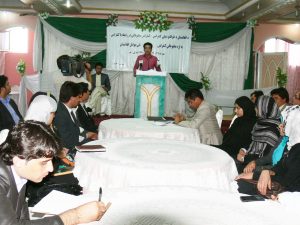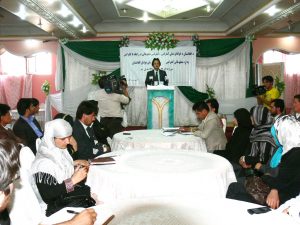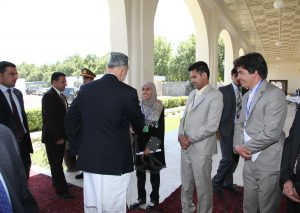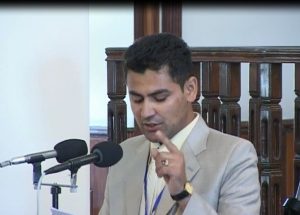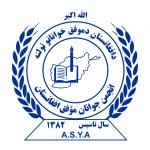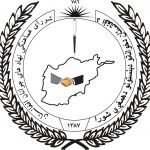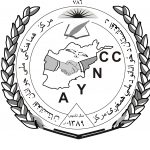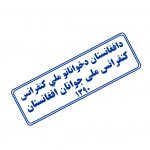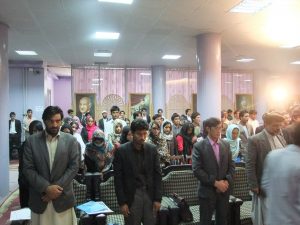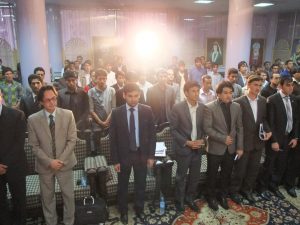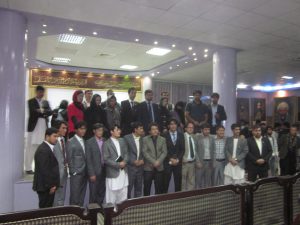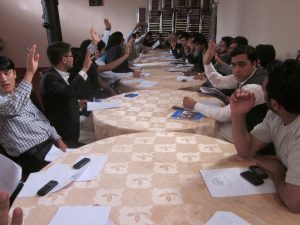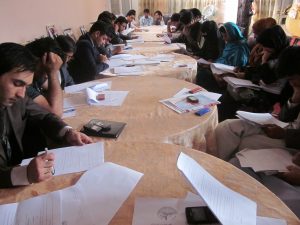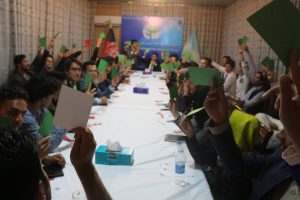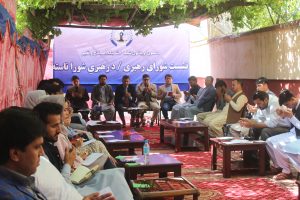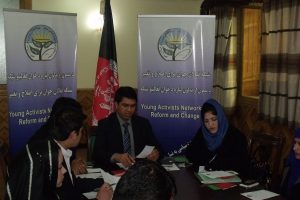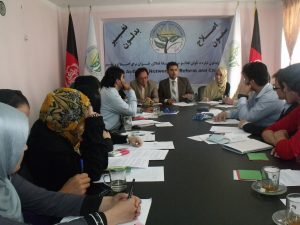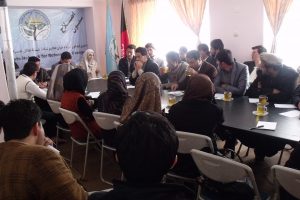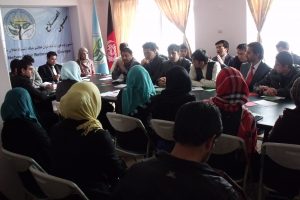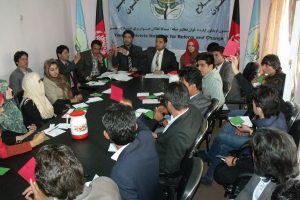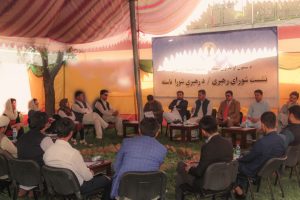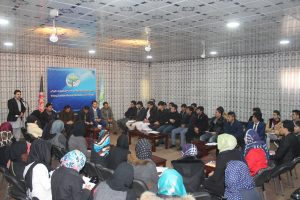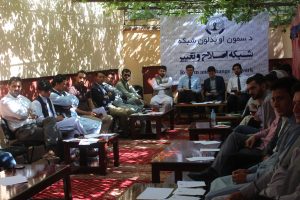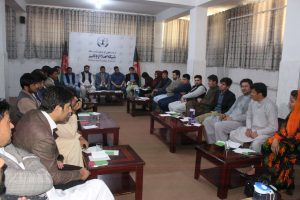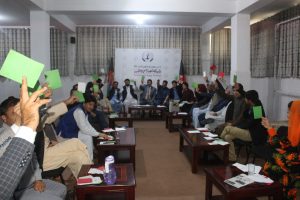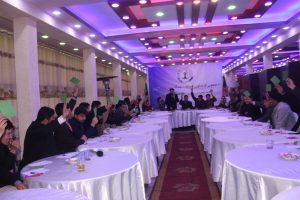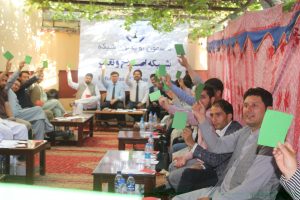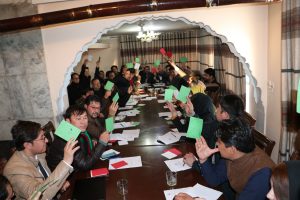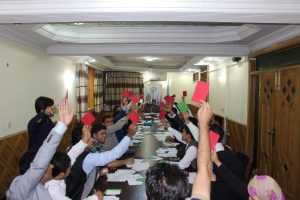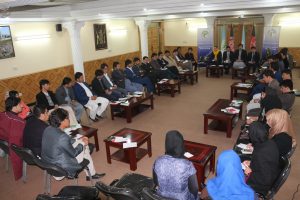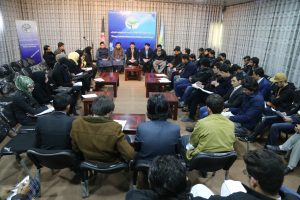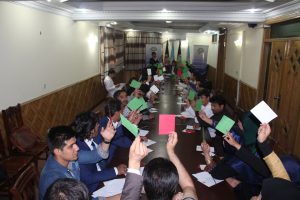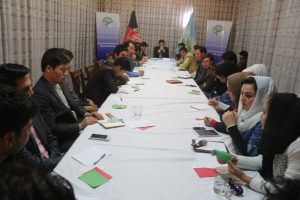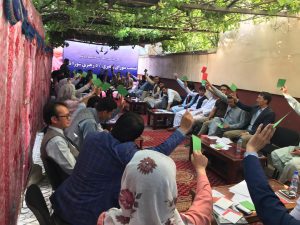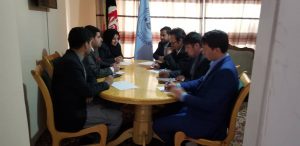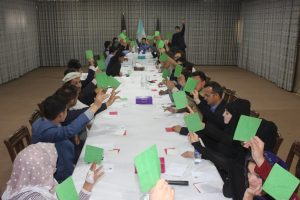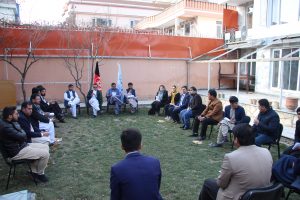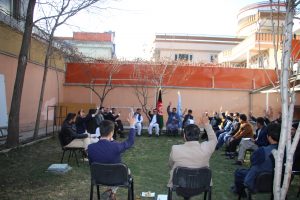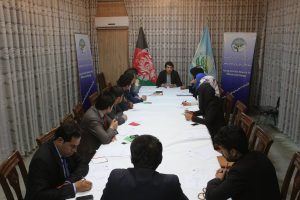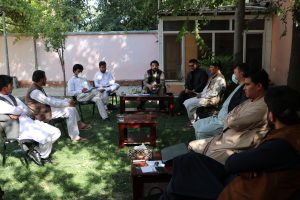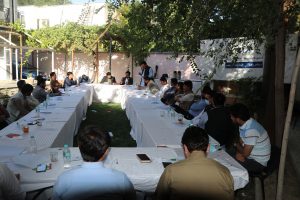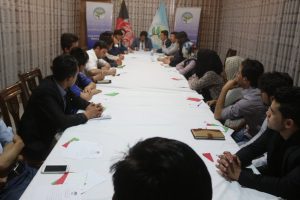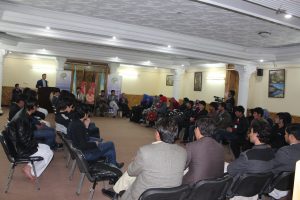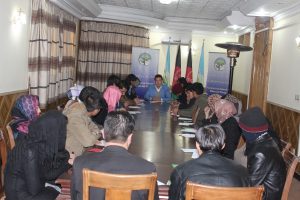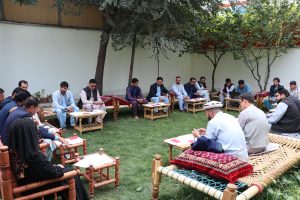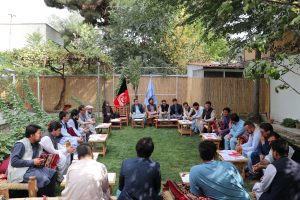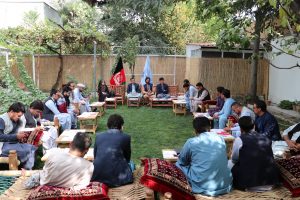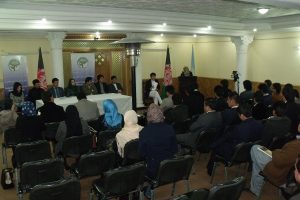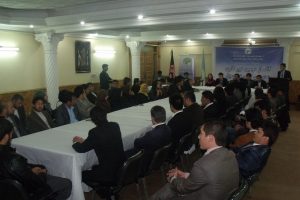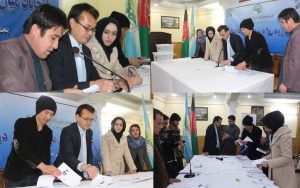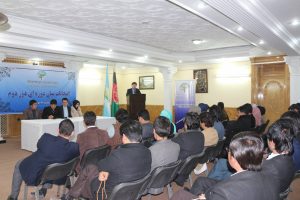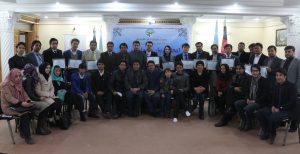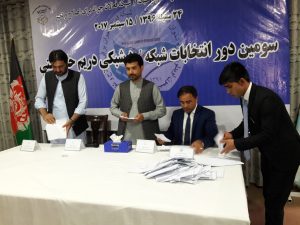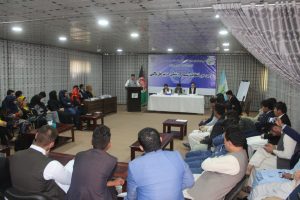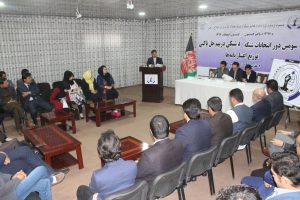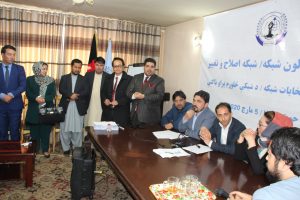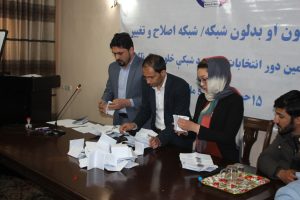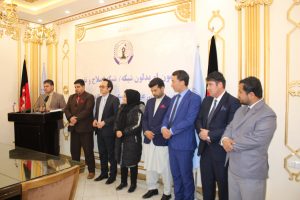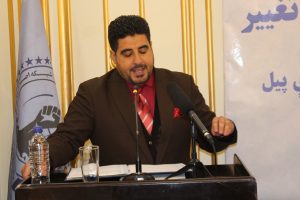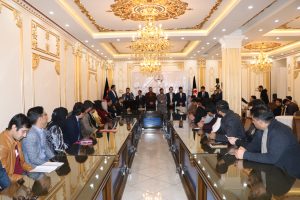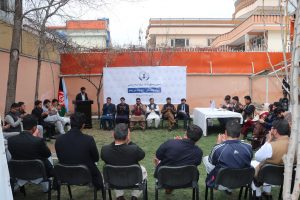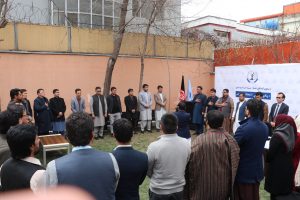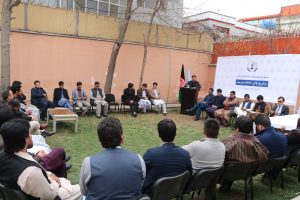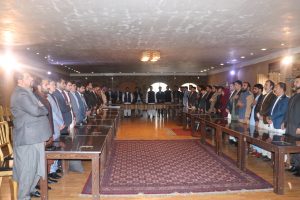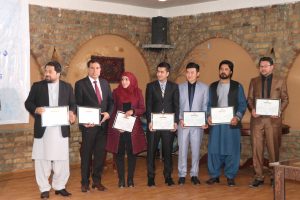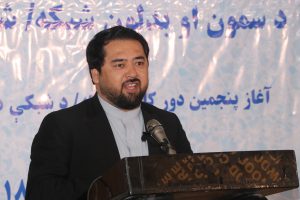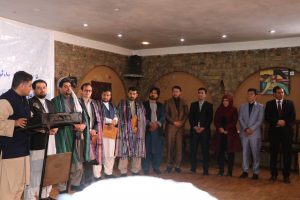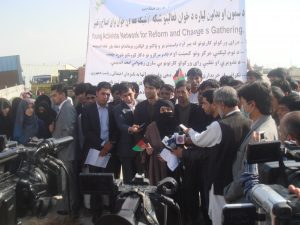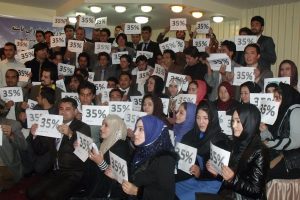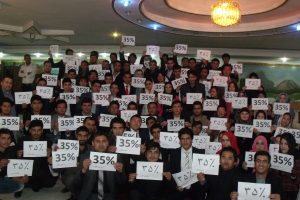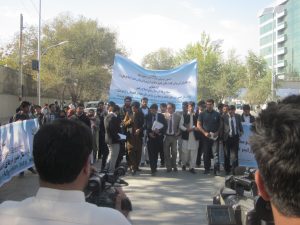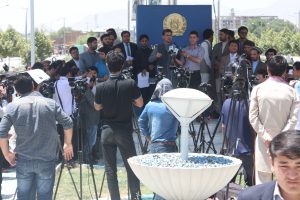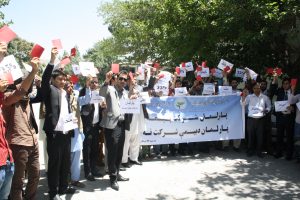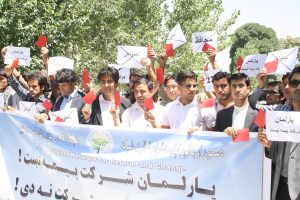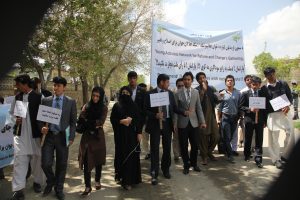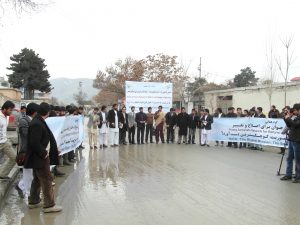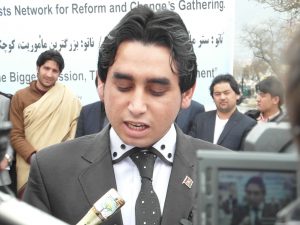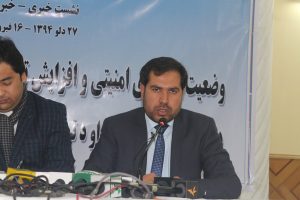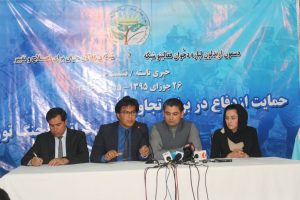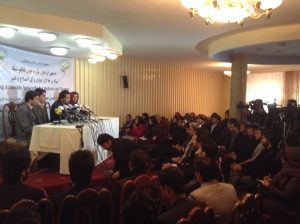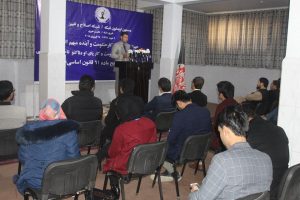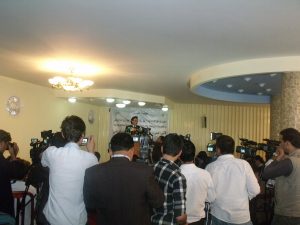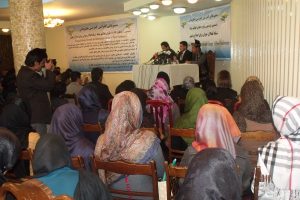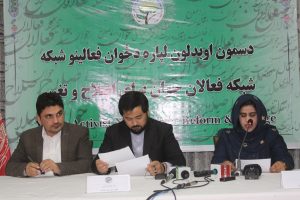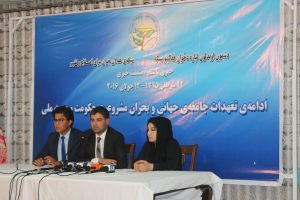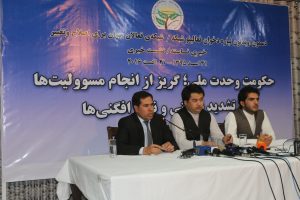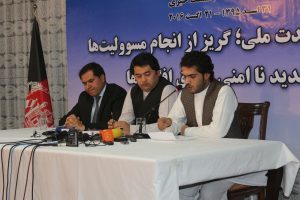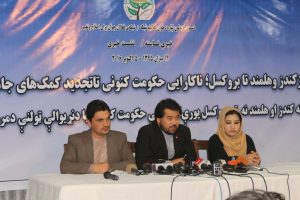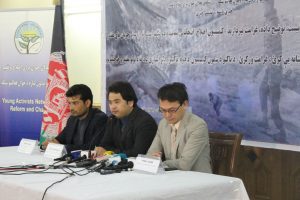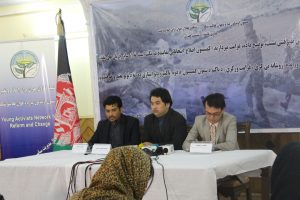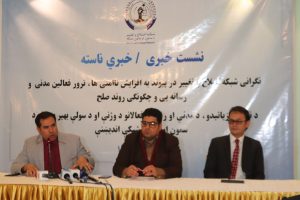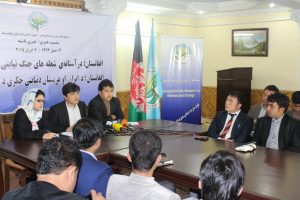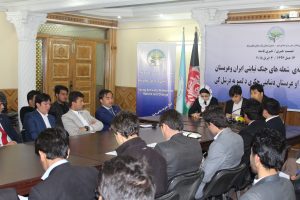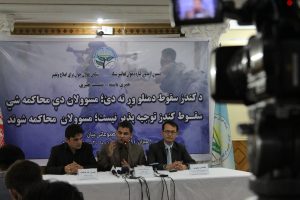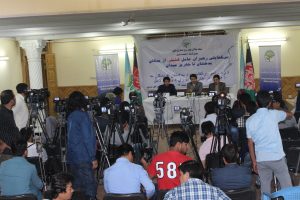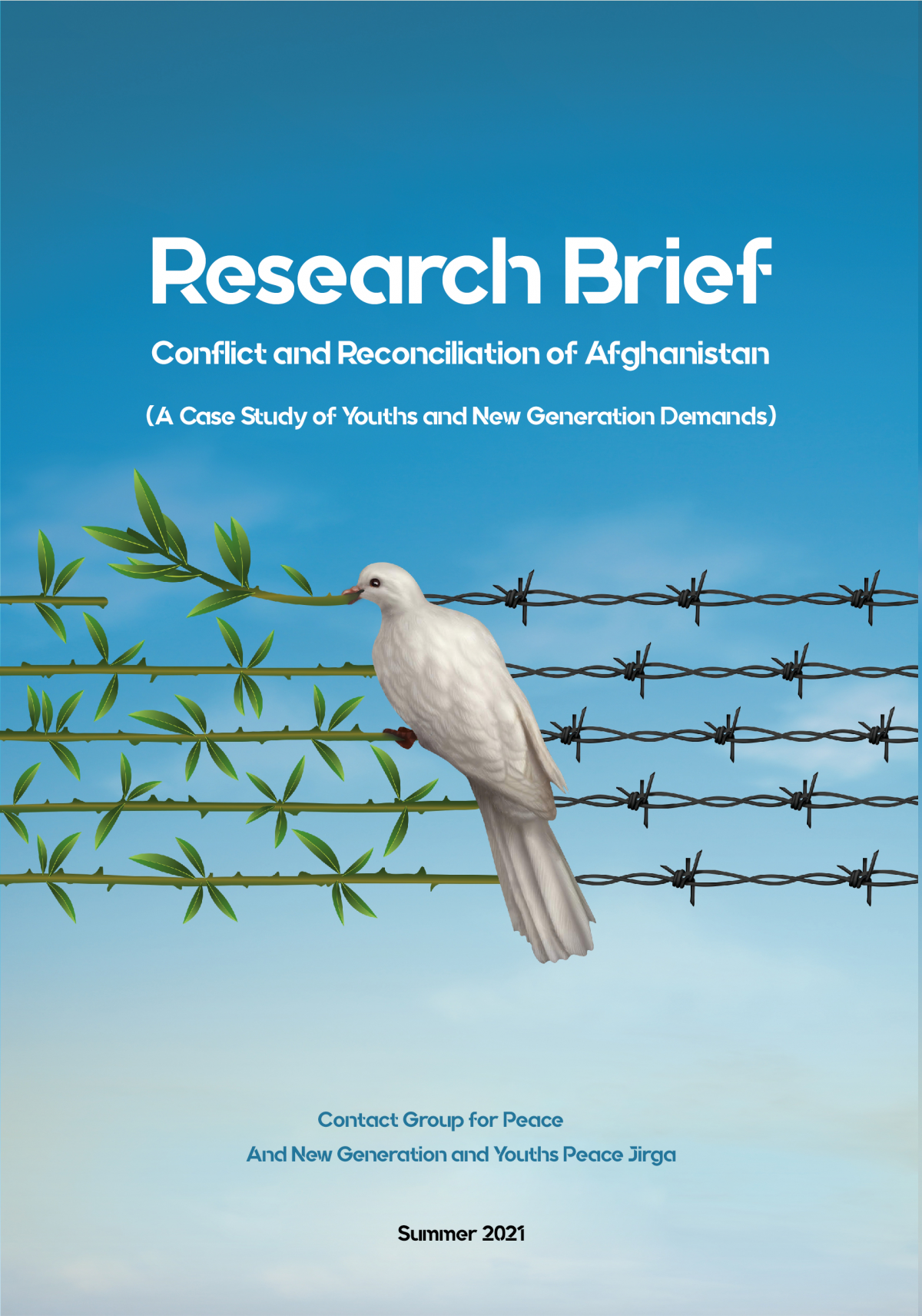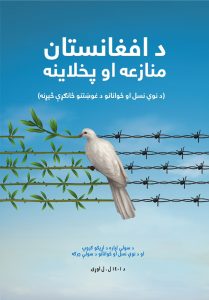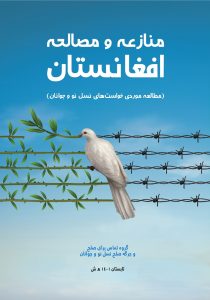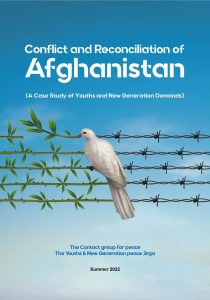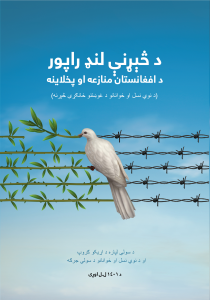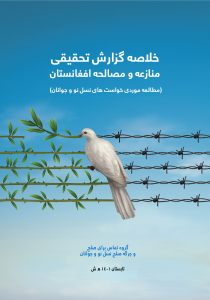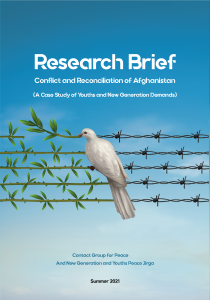The Afghanistan
Youths National Conference was held for two days (June 18 and 19, 2011) in
Kabul for the purpose of putting efforts in consolidating stability, participating
in decision-making and discussing important national and international issues
of the country, with the presence of Islamic Republic of Afghanistan’s
President; Hamid Karzai and participation of more than five hundred youths from
the 34 provinces of the country.
In
this conference, the achievements, approaches and responsibilities of the youths’
institutes, challenges and obstacles against the youths, have been discussed. Descriptive
and explanatory discussions were focused on the circumstance of receiving ways
to consolidating stability, ensuring justice, the peace process, strategic
agreement with America, ensuring the rights of youths, good governance, rule of
law, the principle of transparency and accountability, balanced development,
fighting against drugs, quality education, creating employment opportunities
for youths, clarifying the process of the Administrative Reforms Commission,
understanding the responsibilities of youths and directing youths in
decision-makings.
We,
the Youth participants in this conference are determined to propose the
following through the tenth committees of Education and Higher Education, Economic
affairs, Compromise with Opponents, Civil Victims, Religious, Cultural and Media
affairs, Sports and Health, Environment, Labor and Social affairs, fighting
against drugs and process of power transformation, to the nation and government
of the Islamic Republic of Afghanistan and the International Community:
In
order to develop Education and Higher education, serious attention should be
paid to the budget increasing of these institutions. Because Education and Higher
Education are the infrastructure of the country. At the same time, in order to
build the quality and effectiveness of both educational institutes in line with
national stability and strengthening the foundations of the government, we call
for more coordination between the Ministries of Education, Higher Education, Labor
and Social Affairs.
We
call on the government for preparation and compilation of educational materials
for students and undergraduates according to the needs, conditions of the time,
recruitment of professional, committed and non-political people in educational
institutes, implementation of the unite educational curriculum in all over of
the country, especially in private schools, serious monitoring of private
schools and higher education institutes from the quality, fees and qualified
education perspectives, adapting the reform process in the academic environment
(universities) and enrichment of teaching materials of public and private
higher education institutions, fairly distribution of scholarships, and creating
master's and PHD courses in universities, especially Kabul University.
Serious
support for the balanced development of education throughout the country. In
addition, providing privileges and facilities to the experienced teachers to do
the holy duty of teaching in the provinces and remote areas of the country, and
the establishment of religious centers in the capital and provinces of the
country are the other important issues.
As
the youths are not satisfied with the performance of the Youths Affairs Deputy
(Ministry of cultural affairs), therefore, we want the dissolve of this office
as soon as possible. We call for the formation of an independent department for
youth affairs, and we want a young figure to be hired at the head of it.
In
order to prevent addiction, incretion of the opponents and dozens of other
disasters, urgent attention should be paid to the employment of youths, and the
incorrect work experience that is requested from new university graduates
should be canceled.
The
government should take serious actions in proper management and reasonable use
of natural resources, creating water turnstiles for agriculture and power
production, controlling of wandering waters, encouraging private investors to
extract mines by establishing a proper monitoring mechanism and preventing the
illegal export of raw materials to abroad.
Since
Afghanistan is an agricultural country, therefore, the government should
prioritize the mechanization of the agriculture and livestock sector,
strengthening and encouraging agricultural cooperatives, activating silos,
creating green houses, promoting livestock poultry and beekeeping farms, strengthening
research farms as much as possible, providing health services for livestock
farmers, strengthening and improving the quality of agricultural production and
marketing process. At the same time, great efforts should be made so that the
future Afghanistan should not be dependent to the foreign aid and should be
self-sufficient.
Contracting
and making agreements with the interested countries to establish joint
companies regarding heavy industries, removing custom tariffs from the supply
of raw materials, growing of handicrafts and the reduction of taxes on them,
and creation of a market for them inside and outside of the country, the
construction of warehouses at the borders, serious prevention for the entry of
haram products and goods that their substitutes are produced in the country,
creating a precise and active mechanism for loan payment, imposing a huge tax
on luxury goods, creating social insurance to provide public welfare are our
other emphasis. In order to grow the economy, we call for solution of transit
problems, connecting Afghanistan to the world through Asia with railways, and
the extension of its ring roads to the borders. And finally, we call for
replacement of the mixed economic market with the free economic market.
The
ten-year achievements of the Afghan government should not be vulnerable in the
peace process. The youth generation should have an active presence in all the
movements that work for peace process, and the National Police should be
strengthened instead of local police (Arbaki). Effective figures should be
replaced in peace councils and movements, and all ethnic groups should
participate in this type of activities. Peace must start from the most
vulnerable places and its executive part must not be symbolic. To ensure peace
and stability, Mullah in the mosque, journalist in the media, teacher in the
school and professor in the university should fulfill their national role and
duty and strengthen the peace process. In this regard, the government is
obliged to create the necessary coordination.
Internal
and external agents and the intelligence of the region (neighboring countries)
are involved in civilian victims. Therefore, the perpetrators should be
investigated according to national and international laws. Identifying the
internal effective factors in civilian victims and independence of the military
and intelligence forces is one of our other demands. Recently, foreigners and
their slaves have fueled ethnic discord among our nation, they hurt the
national unity and weaken the government and the nation with the chain terror
of the national elements. Therefore, we call on the Islamic Republic of
Afghanistan government to recognize, follow and prosecute them seriously.
We
condemn the use of nuclear (chemical) weapons seriously and we ask the
attention of the Government, the International Community and the United Nations
in this issue.
The lack of coordination between the internal and external military forces, the
interference of personal goals and enmities of the whistleblowers, the presence
of mentally ill soldiers in the foreign military forces, and using the
residential places by the oppositions, play role in killing of civilians.
Therefore, on perpetrators of mass killings and civilians, internal laws and
conventions must be enforced, and we also call on the oppositions to not use
residential places during the war.
Indigenous
customs should be revised, national identity and freedom of speech should be
defined. The entry and promotion of foreign cultures, films, series and dramas
which is un-Islamic and unethical should be prevented, instead of them, Afghan
films and series should be strengthened and replaced. Also, a commission with
the authority to supervise the media and the National Cinema Academy for the
purpose of improving the quality and quantity of Afghan cinema should be
established, and the safety of journalists should be guaranteed. Expertizing of
issue in the media, instead of negativity, should be criticized and corrective policy
should be presented.
Incretion
in the Olympic budget; establishment of suitable places for federations and
clubs, material and spiritual encouragement and sending athletes and coaches
abroad for capacity building, increasing of sports departments formation in the
capital and provinces, increasing the evening refreshment and regulating the
quarantine period of athletes according to international standards, finally,
establishing of a special sports school and the reactivation of the physical
training institute are among the demands of the youth in the sports sector.
Application
of justice in health services, training of health personnel, serious care of
clinics and pharmacies, application of specialization programs based on merit,
application of preventive programs before treatment, applying the required
vaccines in overall base without considering the class bias, providing clean
water, qualifying of health services, paying serious attention to hospitals for
epidemic patients and providing better facilities for doctors who serve in
remote areas. These issues should be given serious consideration.
Generally,
we agree with the process of power transfer conditioned with the equipment of armed
forces, creation of necessary coordination between the armed forces, implementation
of a specific policy against the country's enemies, supporting and follow-up
system of rewards and punishments, preventing the interventions of neighboring
countries through effective diplomacy, making maximum use of the opportunity of
power transfer for capacity building of armed forces, putting efforts to
establish a superior power at the country level, gaining the continuous trust
of international community and finally, national security should be improved
with keeping in mind the conditions of the 21st century and the period of
military service for youth should be revived.
The
existence of parallel departments has made the fight against narcotics
difficult, for effective coordination, the Ministry of Antinarcotics should be
dissolved, instead of that the directorate of antinarcotics should be
established in the framework of National Security Council Head to get better
success in destroying poppy with better coordination.
Although
clinics have been built for drug addicts but they cannot provide better service.
The solution is to establish eight complexes in the central parts of the
country that would be reachable from nearby provinces. These complexes should
include well-equipped hospitals, specific sports facilities, and vocational
training centers in different departments that after the treatment, they should
engage in healthy activities in the society, because an important cause of
addiction is youth’s unemployment.
Public
awareness from harms of drugs is one of the major responsibilities for
governmental and non-governmental organizations. In order to prevent drug
smuggling and trafficking, more pressure and attention should be given to the
consuming and bordering countries of Afghanistan. Equipping of antinarcotics
police and the frequent change of the borders police is another important
matter in the field.
Turning
attention to enlightening the public mind through various channels to promote
the culture of caring for the environment, paying attention to reduce noise and
air pollution, immediate establishment of the second and third units of Norm
and Standard departments at the borders for the purpose of preventing the entry
of low-quality materials, consumer goods and petroleum, development of green
areas to filter polluted air in urban areas, controlling and technical checking
of smoky engines and stopping of smoky vehicles, and worming out machinery should
be given serious attention in the environment department.
We,
the youths support convenes of the Traditional National Loya Jirga and we want
the participation of the youths in the Traditional Loya Jirga and second Bonn
Jirga.
